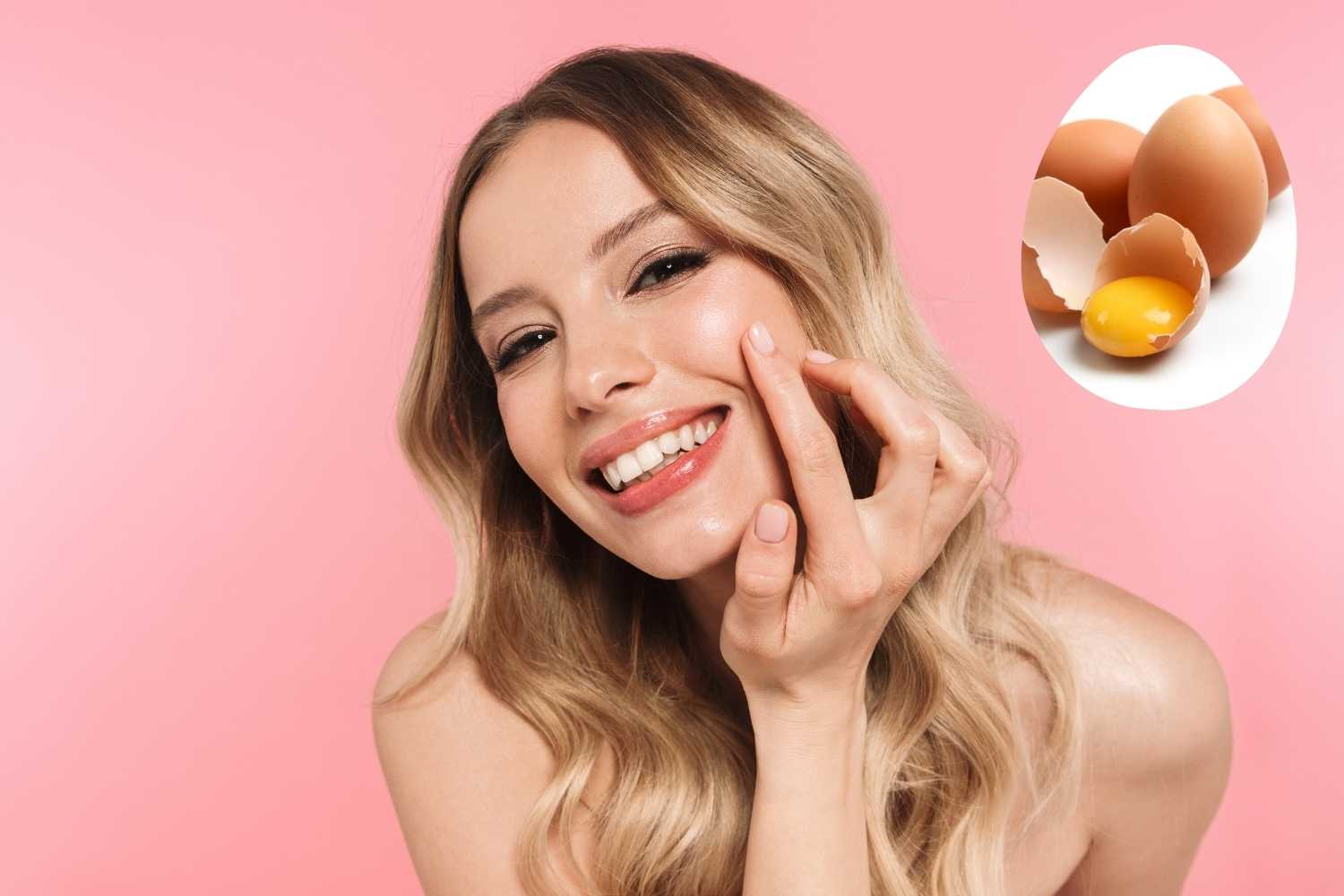The new beauty trend on TikTok sees egg whites as the star of skincare: but is it really effective or are there more risks than necessary? Here's what to know, between myths, truths and real risks.

If you’ve ever opened the fridge looking for something to eat and ended up with… a beauty treatment, you might be spending a bit too much time on TikTok. The social media platform adored by Gen Z has recently crowned egg whites as the new miracle cure for skin: some users whip it up carefully, others slather it on with dedication, and a few even layer it with tissue paper for a DIY “lifting” effect – all while filming themselves.
The promise? Smaller pores, smoother skin, fewer wrinkles, and acne reduction, as if by some magic wand—well, more like a kitchen whisk.
The reality, as often happens, is a bit more complicated.
The questionable trend taking over tiktok
Let’s start with the unlikely hero: egg whites. From a basic food item to a key ingredient in homemade skincare routines. The process is always the same: separate the yolk, beat the egg white until it’s slightly frothy, and then apply it to the face, often with fingers or a makeup brush.
@selinadasilvaa DIY egg & honey facial for tighter & more glowing skin✨ #facial #diy #homeremedy #skincaretips #foryou #glassskin #healthyskin
Some users, aiming for a tighter effect, add two layers of tissue paper, creating a “sandwich” mask. The result, they claim? Toned skin, a botox-like effect, and an instant glow.
@kainatvibes Try this today✨✅. #fyp #koreanskin #eggmask #peeloff #skincare #blackheadsremoval #pores #remedies #facecare #brightskin
But the question on everyone’s mind is: does it really work?
Egg whites: real benefits… or just hype?
First off, egg whites are a rich source of protein, particularly albumin, and contain antibacterial enzymes like lysozyme. Some studies suggest that egg whites might be beneficial for skin health, while others highlight their potential role in fighting acne due to their antimicrobial and anti-inflammatory properties.
But here’s the first big misconception: eating proteins is one thing, but slathering them on your face is quite another. Our bodies absorb nutrients through the digestive system, not by osmosis through the skin. So, while egg whites may provide a temporary tightening effect (the so-called “lifting” effect), they have no long-lasting impact on wrinkles or pores. There has been no serious clinical research to prove that applying egg whites to the skin actually reduces signs of aging.
The risks: allergies, irritation, and… salmonella
Now, let’s get to the serious part. Applying raw egg whites to your skin exposes you to a range of potential problems, not to be taken lightly.
The first concern is allergic reactions. Eggs are one of the most common food allergens, and even if you’re not allergic to eating them, you should stay clear of applying them topically. The skin, especially the delicate skin on your face, can react unpredictably. Even those who have never had symptoms might develop irritations or redness.
Then there’s the issue of salmonella. And this is where it gets much more serious. Raw eggs can carry the bacteria responsible for gastrointestinal infections, which can be severe. You don’t even need to eat the egg; just the egg white coming into contact with your mouth or a small skin cut could lead to issues that go far beyond a simple pimple. The risk is higher if your immune system is compromised, but it applies to everyone.
Let’s not forget that, like any raw animal product, eggs are not sterile. Treating them like a cosmetic product is a serious misjudgment. You wouldn’t put raw chicken on your face, right? So why is an egg suddenly acceptable for skincare?
Skincare is a different matter
Those who work in the beauty industry often remind us: skin should be treated with respect. Not everything that’s natural is automatically safe, and not everything that works in the kitchen works in cosmetics. In fact, quite the opposite.
Looking for simple, homemade alternatives? There are much more reliable ingredients. Oat flour, for example, is soothing and can be a good exfoliant for sensitive skin. Cucumbers truly help reduce puffiness around the eyes, and cold green tea bags are excellent for refreshing and calming inflammation.
Those who care about their skin should turn to certified products, formulated and approved by dermatologists. There are serums and creams with hyaluronic acid, retinol, vitamin C, niacinamide, peptides, and other scientifically proven ingredients. You don’t need to spend a fortune—just read the labels and choose wisely.
Read also: Natural and DIY remedies for 10 small beauty problems
Is it really worth it?
The use of egg whites in skincare is one of those trends that started by accident and got amplified by social media. It’s at times amusing, at other times surreal. But when you look at skin health with a bit of care, it’s clear that the risks far outweigh any potential benefits.
Beautiful skin is built over time, with consistency, patience, and the right allies. And maybe also with a well-made omelette… but on the plate, not on your face.
